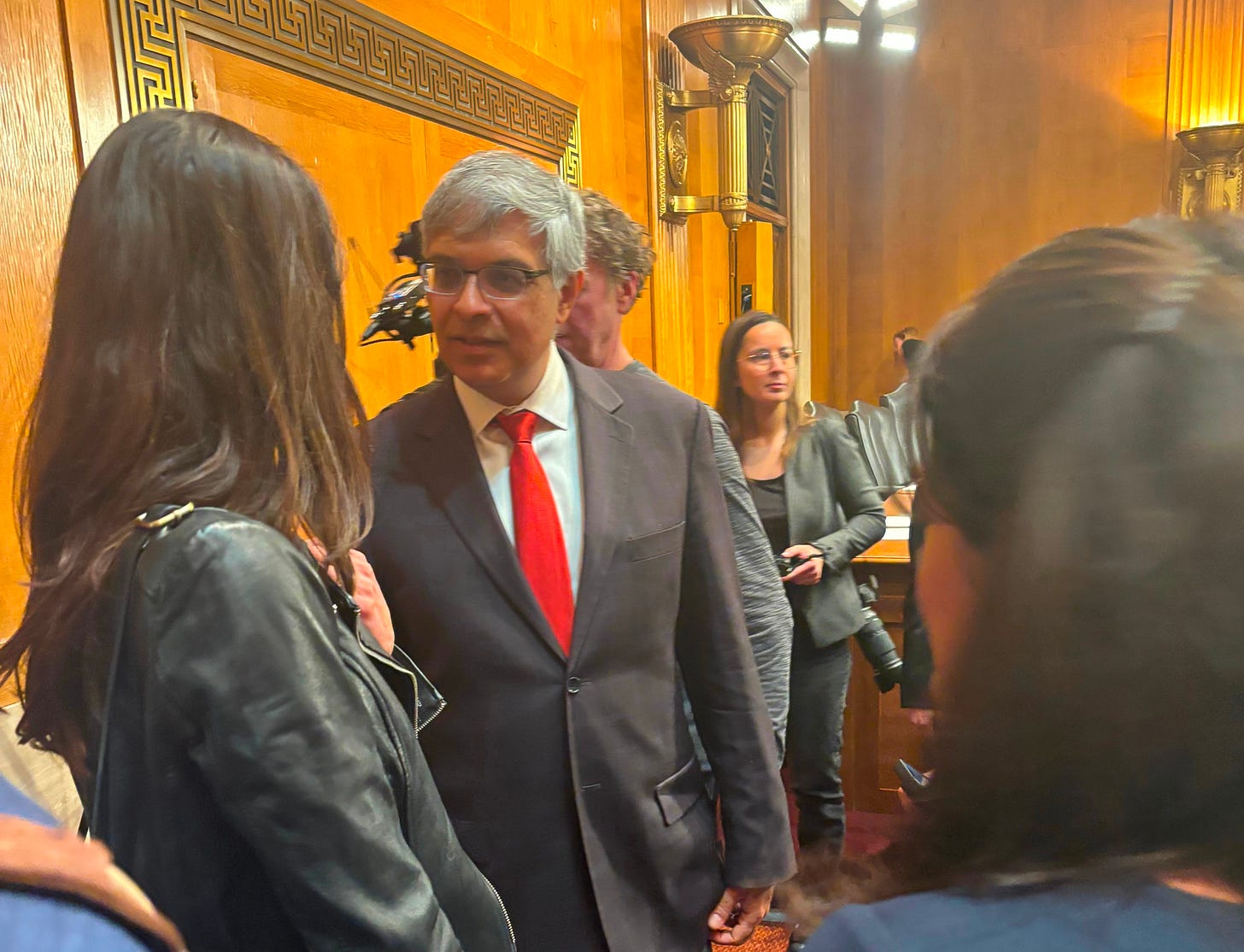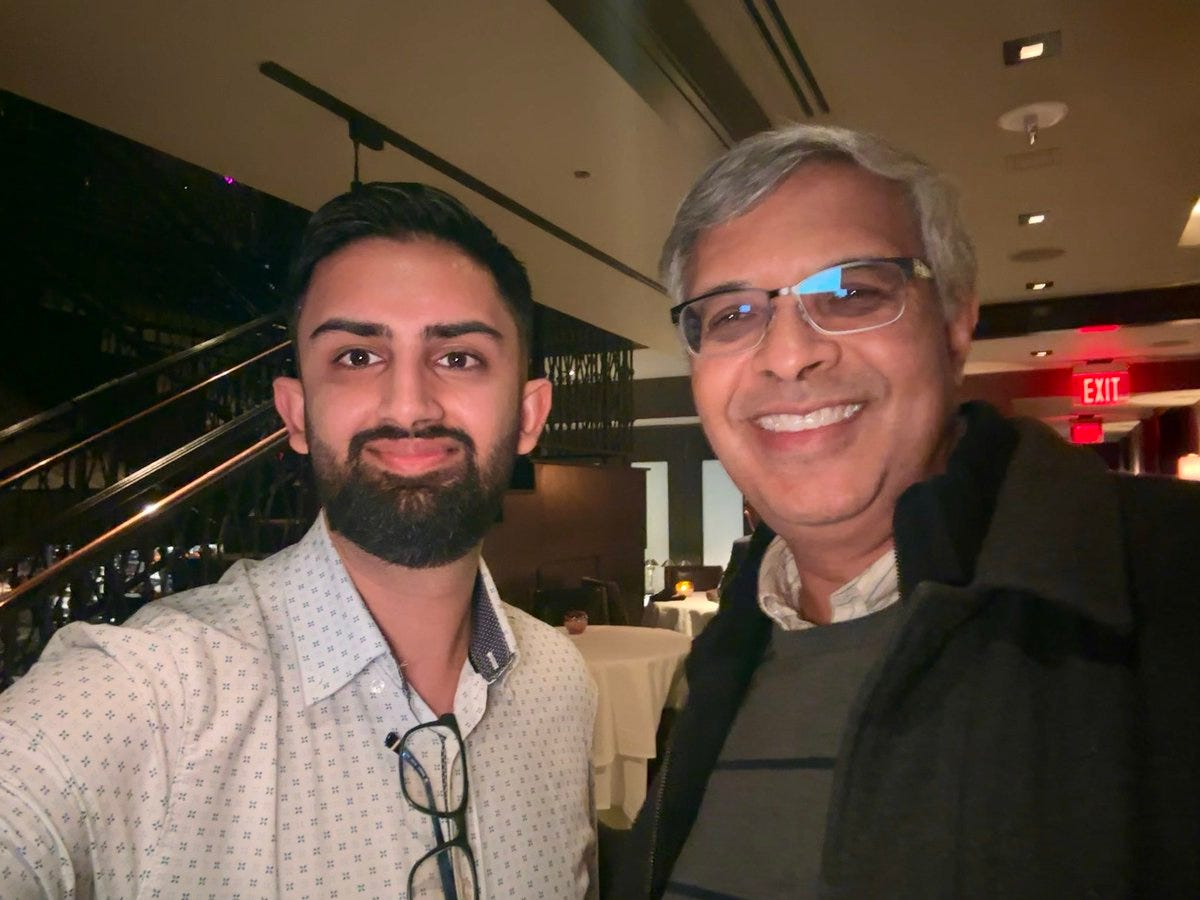Jay's Hearing: A Masterclass in Why the NIH Needs Reform
Last week, Stanford University professor Dr. Jay Bhattacharya appeared before the Senate Committee on Health, Education, Labor, and Pensions (HELP) for his NIH confirmation hearing, delivering a masterclass in why the NIH urgently needs reform — and why he’s the ideal candidate to lead that effort.
During the March 5, 2025 hearing, Bhattacharya defended his vision for the agency and addressed senators’ questions on multiple fronts, including NIH research priorities, funding allocations, vaccine safety, and scientific integrity. The Stanford health economist — known for challenging conventional COVID-19 policies — emphasized the need to restore public trust in the NIH while outlining how he would steer the world’s largest public funder of biomedical research toward more balanced, innovative, and holistic science.
In his opening statement, Bhattacharya made his priorities clear:
“I want NIH funding to study population aging, chronic disease, and obesity.”
“I've made the study of scientific institutions, including the NIH itself, a focus of my own scientific work.”
Bhattacharya is the ideal candidate to lead the NIH precisely because of his alignment with the broader Make America Healthy Again (MAHA) vision and his systems-level, holistic approach to health — a perspective vindicated during the pandemic. As MAHA advocates have highlighted, the chronic disease epidemic is not simply a matter of either poor diet, vaccines, or environmental toxins, but a complex interplay of all such mental, physical, environmental, and social factors. This new era of institutional reform presents a generational opportunity to confront the interconnected causes of modern illness — both physical and mental.
A Systems-Level Perspective
Scientific inquiry often suffers from excessive siloing, isolating research from other disciplines and real-world complexities. During the pandemic, large groups of virologists, immunologists, vaccinologists, and physicians — highly trained in narrow specialties — called for lockdowns, school closures, masking, and social distancing, without fully considering the broader social, economic, and psychological consequences.
Bhattacharya was one of the few with the foresight to resist this narrow thinking. His training as an economist gave him a higher, systems-level perspective that integrated the economic, social, and psychological dimensions of the crisis. As a result, he advocated for more balanced, rational policies — protecting the elderly while allowing younger, low-risk populations to maintain their livelihoods — as articulated in the Great Barrington Declaration, which he co-authored with Martin Kulldorff and Sunetra Gupta.
This nuanced stance made Bhattacharya a target of the public health establishment. Former NIH director Francis Collins infamously disparaged Bhattacharya and his colleagues as “fringe epidemiologists” whose ideas required a “quick and devastating takedown.” Collins later doubled down, telling The Washington Post, “This is a fringe component of epidemiology…This is not mainstream science.”
Unlike his predecessors, Bhattacharya has committed to platforming and encouraging dissenting perspectives. At the hearing, he expressed strong support for funding researchers with unconventional ideas: “some of those [ideas] will fail and some of those will succeed and the ones that succeed can make big advances.”
Leveling the Playing Field
For all the discussions of “equity” and fairness on the left, Jay specifically vocalized support for some policy measures to level the playing field and facilitate greater access to equal opportunity:
“I want to make sure [the NIH] allows early-career investigators to have support. I want to make sure that it allows scientists from non-traditional universities — not just the Stanfords and Harvards — to have support. I want to make sure that people with different points of view about scientific hypotheses have support.”
Ideas like these appeared to have struck notable resonance with multiple Democrat Senators such as Senator John Hickenlooper and even Bernie Sanders At one point, Sanders — echoing themes championed by RFK Jr. — attacked the corporate food industry for promoting unhealthy, processed foods to children. Bhattacharya responded by emphasizing the need for NIH research into the link between junk food and poor health outcomes, aiming to equip parents with the tools to make better choices. When Sanders pressed Bhattacharya on the possibility of leading a movement to discourage junk food advertising, Bhattacharya replied first with questions about how one may proceed to achieve this goal, followed by an emphatic affirmation of interest for bipartisan collaboration on this front:
“I would be willing to work with you, Senator, on that.”
Quiet Vindication on Vaccine Safety and Lockdowns
Perhaps the most revealing aspect of the hearing was what Bhattacharya wasn’t asked about. Despite once being fiercely attacked for his pandemic views, not a single senator challenged him on lockdowns, masks, or vaccine mandates.
When Senator Andy Kim broached the topic of vaccine safety, Bhattacharya directly acknowledged that mRNA vaccine-induced myocarditis has disproportionately harmed young men — a previously taboo topic. Two years ago, such a statement would have provoked fierce backlash, with claims that “the risk of COVID outweighs the risk of the vaccine.” Yet at the hearing, no senator pushed back — likely because they knew Bhattacharya would have demolished them with data and logic.
Ending Gain-of-Function Research
Arguably Bhattacharya’s most important statement during the hearing concerned the NIH’s funding of gain-of-function research — which many credible experts believe led to the pandemic via a lab leak:
“The NIH, I don’t think, should be doing any risky research that has the potential to cause a pandemic.”
If Bhattacharya’s stance on gain-of-function research is implemented, that alone could justify his confirmation. The pandemic taught us that the fate of humanity itself could hinge on reining in such dangerous experimentation.
The Right Leader for This Moment
Bhattacharya’s confirmation hearing underscored why he is the right leader for this moment. His commitment to scientific integrity, intellectual diversity, and systems-level thinking stands in stark contrast to the rigid, authoritarian approach of previous NIH leadership. His willingness to confront uncomfortable truths — whether on vaccine safety, corporate food lobbying, or pandemic mismanagement — reflects the kind of courage and integrity sorely needed at the NIH.
If America is serious about reversing the chronic disease epidemic and restoring public trust in science, confirming Jay Bhattacharya as NIH director is not just the right move — it’s essential.
The Illusion of Consensus is a fully reader-supported publication. If you support the high-quality science and Big Pharma journalism on this site, consider becoming a paid or founding member to receive exclusive articles, early-access episodes, and ask questions for future episodes. Or support The Illusion of Consensus with a one-time donation.
This piece will be jointly published on RealClearPolitics.
Yes, I also got to chat with Jay myself! Personal essay on my support for Jay coming soon. Selfie we took in DC last week:




Thanks Rav, great material as always from you. Jay is the right guy for this job!
Thank you for this honest, intelligent article. Jay exudes integrity, sincerity, intelligence and kindness. He is more than qualified for the job.